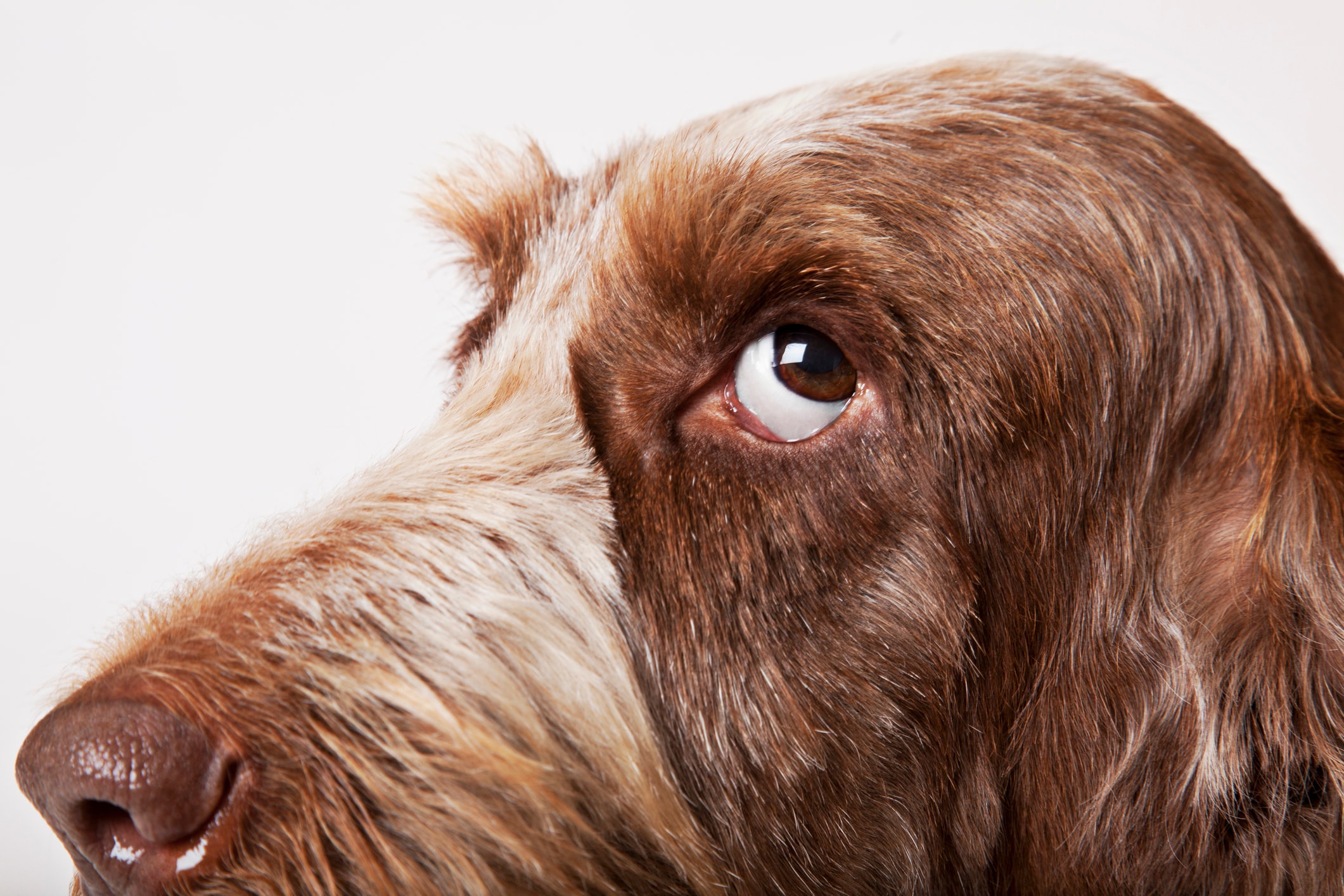It’s tough when dogs don’t act like their happy, lovable selves. When you hear it’s because of dog kidney failure, it can be devastating news. But it doesn’t have to be.
What exactly does kidney failure mean? Chronic kidney failure and kidney disease are actually the same thing, says Dr. Karen Becker, a veterinarian integrative pet care expert at Mercola Healthy Pets. “There are four stages of chronic kidney disease. In stage one and two, the animal isn’t in failure yet,” Dr. Becker says. Treatment focuses on resolving the cause of the kidney disease. In stage three, treatment focuses more on assessing how the disease is progressing and beginning to take measures to protect the kidneys.
“When 60 percent of the kidney function has failed, we deem it kidney failure or chronic kidney failure,” she explains. At that point, treatment often involves tending the particular problems your dog might be having as a result of the disease.
Additionally, there are two types of kidney failure: chronic, which originates from kidney disease and is often seen in aging dogs, and acute, which happens quickly from an immediate cause such as accidental poisoning or tainted food. According to Dr. Carrie Fleming Schuler, a veterinarian co-owner of Northwest Neighborhood Veterinary Hospital in Portland, Oregon, dog kidney failure isn’t the death sentence it sounds like. “Many cases can be treated successfully, and dogs can look forward to months or often years of quality life,” she says.
In any case, you’ll want to know how to prevent both with these tips.
- Adjust Your Pet’s Diet
The most important thing you can do to prevent kidney disease, according to Dr. Becker, is choose a high-quality dog food. She advises her patients avoid options found at a grocery store. “Ninety percent of those foods are made with very poor quality protein like hide, snout and beak. And over time, poor quality protein taxes the kidneys,” she says. Keep foods that are poisonous to dogs, such as grapes, out of reach and make sure your dog has access to plenty of clean water.
- Brush Your Dog’s Teeth
Dental disease, surprisingly, is one of the most common causes of chronic kidney failure. Maintaining good oral health for your dog is paramount.
- Avoid Hazardous Items
Monitor medications closely to ensure proper dosing, and don’t give over-the-counter medications without checking with your vet. To prevent acute kidney failure due to poisoning, be sure your dog doesn’t have access to any toxic substances (e.g., antifreeze), and always supervisor your dog while outside.
An annual blood and urine test is the best way to detect kidney disease before it turns into kidney failure, says Dr. Becker. But if you haven’t had that test done and you’re concerned, here are symptoms you need to know about.
- Monitor Eating Habits
See if there’s a change in water consumption and urine produced. Also take note of a loss of appetite or weight loss.
- Look for Behavioral Changes
Depression, listlessness or lethargy can be signs of dog kidney failure. If your dog is stumbling or acting drunk, see a vet.
- Take Note of General Illness
“When kidneys fail, toxins normally excreted into the urine build up in the blood, making the dog feel sick,” says Dr. Schuler. Vomiting, fever or blood in urine could indicate kidney problems.
If you witness any of the above symptoms or believe your dog has been exposed to or ingested a known kidney toxin, you should take your dog to the veterinarian immediately. Aging dogs should also have their blood and urine checked annually. Your dog’s treatment plan will depend on whether she has acute or chronic kidney failure. Dogs with acute kidney failure will be hospitalized and given fluids. Those not showing severe symptoms may be managed with prescription diets and medications.
Make sure your dog’s caregivers are well educated on the condition. Your dog sitter or dog walker will need to monitor things like your dog’s appetite, water intake and energy level and be willing to communicate those things to you during the day. The dog walker or pet sitter may also need to learn to give your dog medication.
“Regardless if a dog is sick, dog walkers and pet sitters should know who the dog’s veterinarian is and the location,” recommends Dr. Schuler. It’s also a good idea for your pet sitter to have clear written instructions about your wishes for your pet’s medical care, in case you are traveling or unable to be reached.
And read Preparing for a Pet Care Emergency.
Andrea Dashiell is a freelance writer whose work has been published in The Seattle Times, Seattle Magazine, ParentMap, Parents.com, DailyCandy and Red Tricycle.
* This article is for general informational purposes only. It is not intended nor implied to be providing medical advice and is not a substitute for such advice. The reader should always consult a health care provider concerning any medical condition or treatment plan. Neither Care.com nor the author assumes any responsibility or liability with respect to use of any information contained herein.





